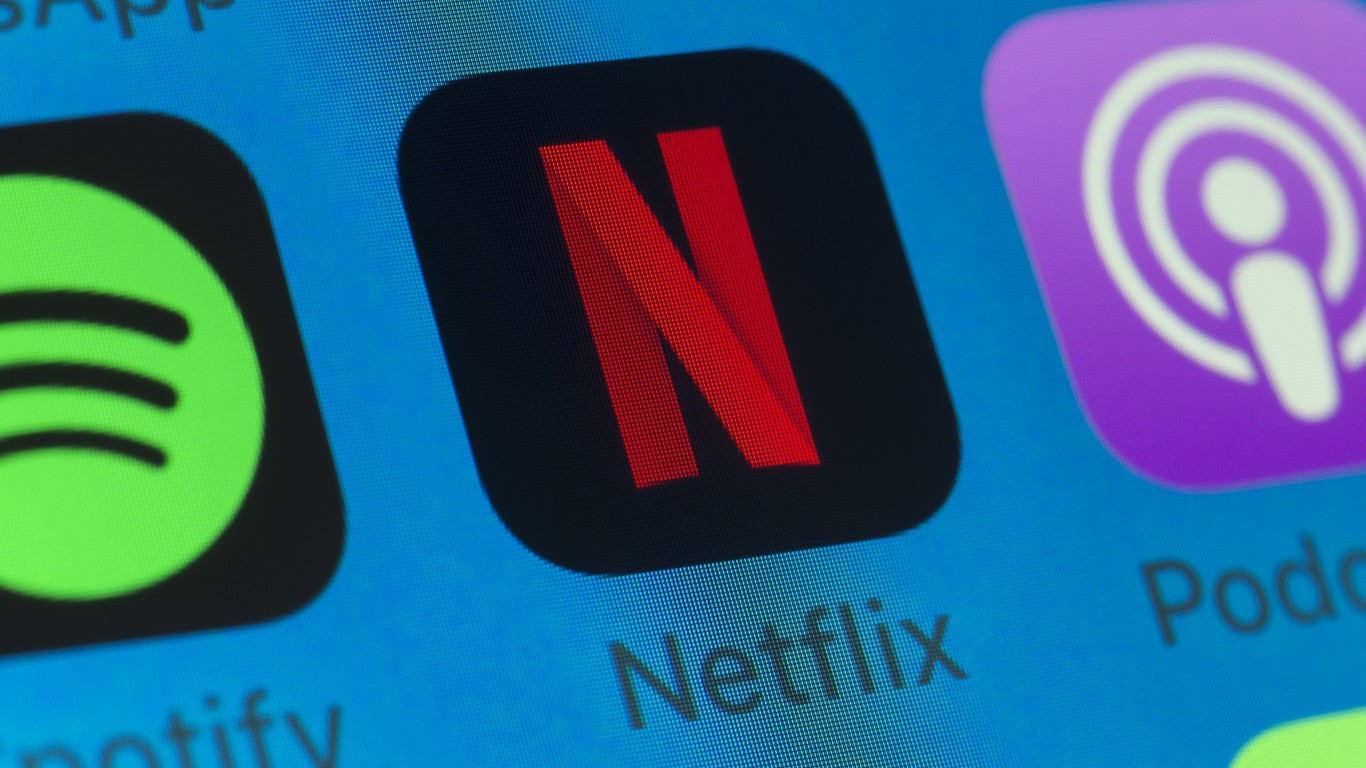Media
Netflix Nears 200 Million Subscribers, Competition Struggles to Catch It

Published:

Netflix Inc. (NASDAQ: NFLX) recently forecast it will have over 190 million subscribers worldwide at the end of the quarter. Its normal growth rate, plus a surge due to the pandemic, could push that number above 200 million by midyear. In a market in which most people pay for only two or three streaming services, Netflix’s size and rapid rise mean trouble.
Among Netflix’s advantages are that it has turned its subscriber base into a revenue-creating machine. It should bring in $25 billion this year. Net income should top $300 million. Its one major weakness is that it has made and must continue to make a huge investment in original programming to keep current subscribers and add new ones. It carries $14 billion on its balance sheet, against cash of $5 billion. Investors have largely ignored that challenge. Netflix has a market value of $188 billion
The average American household has three paid streaming services, for which they spend less than $10 each. Netflix has a standard subscription price of $12.99. So, in households that have it, Netflix takes well over a third of that.
The second subscription service by paid user count comes with Amazon.com Inc.’s (NASDAQ: AMZN) Prime. The e-commerce company does not give out a subscriber figure, but it is estimated to be over 140 million.
After Amazon and Netflix, several services struggle for third place. Some of the competition, like Hulu, have been in the field for years. Hulu has 32 million subscribers and is growing.
Some newcomers have done well. Walt Disney Co.’s (NYSE: DIS) Disney+ has over 50 million subscribers. Its advantage is it has the exclusive rights to some of the most popular movies in history. It owns the Pixar, Marvel, Star Wars and Disney libraries. It also has priced itself below most competitors at $6.99 a month.
Another company with tremendously deep pockets that has entered the field is Apple Inc. (NASDAQ: AAPL), with its Apple TV+ product. It is priced at $4.99 a month. Apple can afford to lose money in the business for years as it builds a library of licensed and original content.
Two new companies have launched or will launch services. They are well behind the curve because they are late to market. HBO Max has HBO content and the library of Warner Bros. and TBS programs. Many people who already have two or three services may ignore it. How much content can the average person watch in one day?
The last highly visible service to be launched recently is Quibi. It has short-form programs, for which there may be little appetite. Many early reviews of the service have been poor.
The success of Netflix leaves only modest room for competition. It also blocks the chance that new services will be successful.
If you’re one of the over 4 Million Americans set to retire this year, you may want to pay attention.
Finding a financial advisor who puts your interest first can be the difference between a rich retirement and barely getting by, and today it’s easier than ever. SmartAsset’s free tool matches you with up to three fiduciary financial advisors that serve your area in minutes. Each advisor has been carefully vetted, and must act in your best interests. Start your search now.
Don’t waste another minute; get started right here and help your retirement dreams become a retirement reality.
Thank you for reading! Have some feedback for us?
Contact the 24/7 Wall St. editorial team.